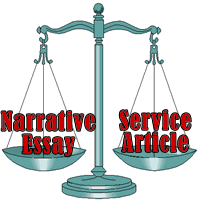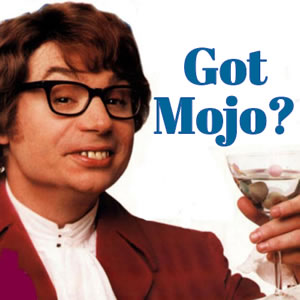Time for another question from my mailbag!
Okay, it’s not really a “mailbag”, it’s my inbox, but “question from my inbox” just doesn’t have quite the same ring.
Nevertheless, this is another question I’m frequently asked by travel writers and bloggers….
Q. I keep hearing about this “debate” over what’s considered the best travel writing – narrative essays or information and review pieces….is one really better than the other?
A. No, neither is ‘better’ than the other.
Both are rightly considered travel writing, even though they are completely different in style, tone, and structure. At their core, both are intended to encourage and support tourism, albeit from differing approaches. Both can educate the reader, even though the education is different.
Aside from the writing itself, the biggest difference is generally the intended audience.
Narrative essays appeal to those looking to get a general sense of a place, a feel for somewhere they’ve never been, or to understand a culture, through the eyes and experience of someone else. When you write narrative essay, you’re sharing your experience with others, allowing them to come along on your journey vicariously.
Information and review pieces (aka “service” pieces) are more appealing to consumers who are planning a trip and seeking information – the what, where, when, and even why, about a place before they commit to going there.
Think of it this way: If you’ve ever wondered what it might be like to go on an African safari, you’d enjoy reading someone’s essay about their experience – the way the monkeys made them laugh, the scary moment when they saw a water buffalo up close, the wit and humor displayed by their guides, all will give you a sense of having been there.
However, if you’ve already decided to make such a trip and you’re looking to actually book a safari, you’d probably be more interested in a review of some companies that organize safaris, some facts about what time of year is best to go, what you should expect to pay, and perhaps some advice on what to pack.
Both styles of writing serve a purpose, both offer value to the reader.
What’s most important is that you decide which style of writing a particular piece is intended to be, and what your goal for it is, and then put your focus into developing it to the best of your ability.
And stop listening to anyone who tells you that one style is better than the other.
In my opinion, snobbery has no place in the world of writing. Every writer should develop their own style and skill, and understand that for every story there is an appreciative reader, and that’s what it’s all about.
~ Trisha






Thanks so much for sharing. Sometimes I struggle with what my voice should be on certain pieces, and every time I go against my gut, whatever I write is garbage. Thanks again!
Very good point Tricia! It’s always best to go with your first instinct about what you want to write, but remember that most travel writers gather enough material (keeping notes, photos, etc.) to be able to write multiple pieces, which is where you can use different styles and voices.
Thanks for stopping by and commenting!
Thank you Trisha, I find that there is a lot of snobbery and I can’t understand it. If you feel like writing a narrative piece on day go for it. If you want to write an informative piece do that too. I don’t understand why people have to judge one persons way of writing over another. There is room for everyone out there on the Internet. Cheers!
I completely agree – I run into this type of snobbery all the time and I also can’t understand it…..thank goodness that the internet is a very big place, with room for all!
Always an interesting decision for any writer to have to make. I’d say, if you have both the luxury and the passion to do a narrative piece then do it. People stop and listen when you’re obviously speaking from a first-hand experience and especially if you have a deep connection or back story with the environment that you’re describing. In fact, people seem to love that – your own subjective reactions and engagement serves in turn to transport them in a powerful way. Depending on the rest of the structure of that article – you may be keeping your “fast facts on the ground” over in a sidebar elsewhere – the usefulness of that piece from the viewpoint of a tourism board or public relations firm may be more questionable. For many of them, I think they’re wondering whether your subliminal powers are really firing up the reader to make that all-important decision to book a trip, as compared to the outright utility of the “information and review” piece.
So yes, both provide an education – one is often very subliminal and subjective, the other is often more detached and pragmatic. Maybe that’s also part of the difference that some draw between travel writing and travel journalism – but I’ll leave that debate aside for others. Personally, I prefer all the risks entailed in the joy and luxury of being the travel writer, whenever I’m allowed to be. Why do I say risks? Because you put yourself on the line each time in exposing your own human quirks, like and dislikes, your own set of values and reactions to the world you’re exploring each time you do that. One early example I remember is discussing travel writing with a very dear friend of mine who was actually also very much my own mentor years ago in becoming a travel writer/journalist. I said to her one day: “I really love Paul Theroux’s travel writing and his observations about Africa”. She replied instantly: “Well, he’s very good of course but I don’t care for him because he always exhibits a cruel sense of humor.” I found that startling because, of course, her individual response to his individual response was very different from my own human response, and maybe cruelty sometimes is in the eyes of the beholder just like beauty? Never mind. The point being, that no matter how high you fly, some will loathe you as much as some will love you. The trick is to keep reminding yourself that the love is out there too, and isn’t that great to wake up to each day when you try to talk to the world again?
Bravo, Hal! Very well said.
The narrative pieces I enjoy most are those in which the author’s emotional engagement with the subject comes across clearly….that is, after all, what I want to know – what effect did the experience have on him or her?
I also agree that far too few of those who work in tourism or PR truly understand the power of narrative essay, that it can (and often does) inspire more people to travel than simple informational pieces, which are mainly attractive to those who have already decided to travel. But the bottom line is that you’re right, no matter what you write there will be those who love it and those who hate it. We take our pleasure from those who love it, and (hopefully) learn something from those who hate it.
I agree that no one style is better than the other, afterall both have their advantages. I do have a preference myself though for the narative style. I always find it more interesting to get an objective opinion and to hear someone else’s emotional impressions of a location. I think that this style also has the benefit of making the reader more comfortable, and more open to suggestions and reccomendations when it comes to places to visit.